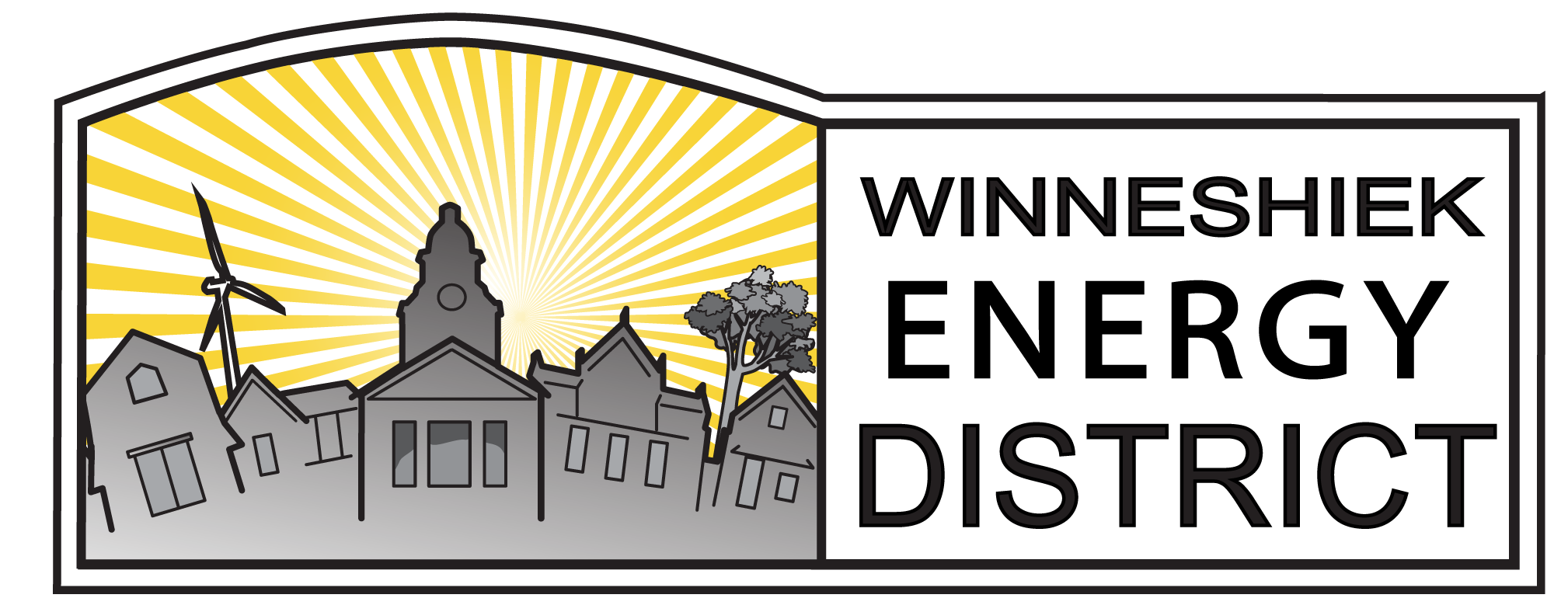May’s Solar to Storage Webinar
By Jim Martin-Schramm
The director of Luther College’s Center for Sustainable Communities, Jim Martin-Schramm, presented “Solar to Storage” during the Winneshiek Energy District’s Online Lunch Webinar on Tuesday, May 19.
Jim spoke about Luther’s latest renewable energy project, which will involve the installation of another large solar array and energy storage system in the field near the intersection of US-52 and Pole Line Road.
This will be the third solar project Luther has developed in a partnership with a local investor. The system will be installed by a local firm, Perry Novak Electric and the energy storage system was sourced through Luther’s wholesale electricity supplier, Werner Electric.
The 950 kW (DC) solar photovoltaic array will generate around 1.2 million kilowatt hours per year, which is about ten percent of Luther’s current annual consumption. The project will help Luther reduce its carbon footprint by another 5 percent. Both percentages will increase as Luther continues to make investments in energy efficiency.
The 370 kW lithium-ion battery storage system will discharge power for up to four hours during periods of peak power consumption on the Luther campus. This will help Luther reduce its annual electricity costs, which are pegged to annual peak demand.
Luther’s electricity costs have been increasing at an average rate of 4.72 percent over the past 15 years. The ten-year power purchase agreement enables Luther to source carbon-free electricity and reduce campus operating costs at the same time. All of the energy will be used on campus; none will be exported to the grid.
The project was facilitated in part by studies conducted by the National Renewable Energy Laboratory (NREL) in 2016-2017. Luther was one of fifteen colleges and universities NREL selected to provide free consultation regarding the viability of solar + storage systems.
Ranked nationally in the top 10 colleges for campus sustainability, Luther has made serious commitments to energy efficiency and renewable energy with a goal of reducing greenhouse gas emissions by 70% and becoming carbon neutral by the year 2030.
For more information, contact Jim Martin-Schramm at marschja@luther.edu.
Watch the webinar recording below.
